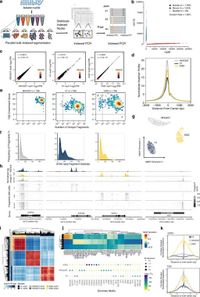A new method called IT-scATAC-seq enhances the profiling of chromatin accessibility in individual cells.
This innovative approach streamlines the preparation process, allowing researchers to analyze up to 10,000 cells in just one day at a remarkably low cost of around $0.01 per cell.
In recent advancements, the IT-scATAC-seq technique showcases significant improvements in library complexity and signal specificity compared to existing methods.
Researchers applied this novel methodology to explore mouse embryonic stem cells (mESCs) and human peripheral blood mononuclear cells (PBMCs), uncovering critical insights into cellular differentiation and the immune system.
The IT-scATAC-seq process employs a unique three-round indexing strategy that not only optimizes data quality but also significantly reduces hands-on time during experiments.
According to the study conducted by a team of scientists, IT-scATAC-seq demonstrates exceptional performance in profiling chromatin regions essential for gene regulation without the need for specialized equipment.
This development signifies a leap forward in single-cell epigenomics, providing more accessible and scalable options for investigating complex biological questions across diverse research fields.
Furthermore, the methodology sheds light on dynamic chromatin remodeling as mESCs transition to a primed state, highlighting the importance of chromatin accessibility in determining cell fate.
By facilitating high-resolution insights into regulatory programs specific to different cell types, IT-scATAC-seq opens up new avenues for understanding human health and disease mechanisms.
The findings underscore the potential of this technique to enhance future research in developmental biology and functional genomics, enabling researchers to delve deeper into the intricacies of cellular identity and function.

